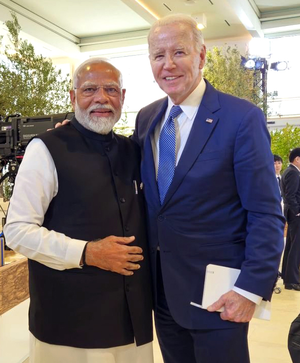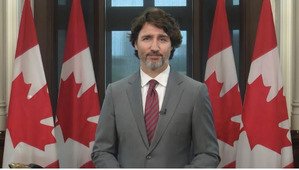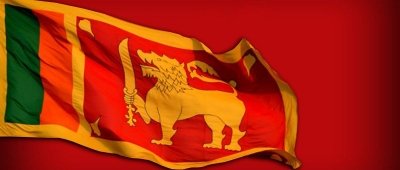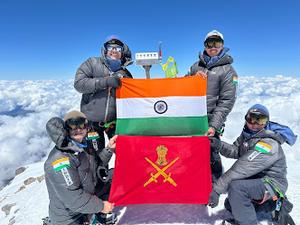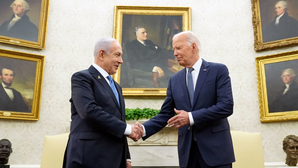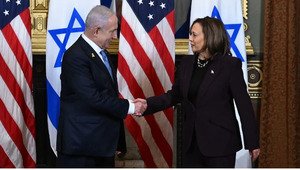Author: Menekse TokyayTue, 2017-03-14ID: 1489464241843948400
ANKARA, Turkey: Ankara banned the Dutch ambassador from returning to Turkey as part of a series of political sanctions against the Netherlands on Monday over its refusal to allow two Turkish ministers to campaign there.
It also halted high-level political discussions between the two countries and closed Turkish air space to Dutch diplomats.
Deputy Prime Minister Numan Kurtulmus, briefing journalists after the weekly council of ministers meeting, said the sanctions would apply until the Netherlands takes steps “to redress” the actions that Ankara sees as a grave insult.
“There is a crisis and a very deep one. We didn’t create this crisis or bring it to this stage,” Kurtulmus said. “Those who did have to take steps to redress the situation.”
Other sanctions bar the Dutch ambassador entry back into Turkey and advise parliament to withdraw from a Dutch-Turkish friendship group
The announcement came hours after Turkey’s foreign ministry formally protested the treatment of a Turkish minister who was prevented from entering a consulate in the Netherlands and escorted out of the country after trying to attend a political rally.
The ministry also objected to what it called a “disproportionate” use of force against demonstrators at a protest afterward. Separately, Turkey’s foreign minister was denied permission to land to address the same rally in Rotterdam.
The argument is over the Netherlands’ refusal to allow Turkish officials to campaign there to drum up support among Turks who are eligible to vote in an April 16 referendum that would greatly expand the powers of Turkish President Recep Tayyip Erdogan.
About 400,000 people with ties to Turkey live in the Netherlands, though it’s not clear how many are eligible to vote.
Erdogan said the two cabinet ministers — Foreign Minister Mevlut Cavusoglu and Family Affairs Minister Fatma Betul Sayan Kaya, would ask the European human rights court to weigh in on their treatment. He added that he didn’t think the court would rule in Turkey’s favor.
Earlier, German Chancellor Angela Merkel backed the Netherlands in its diplomatic fight with Turkey, as NATO’s chief called for alliance members to respect each other and the European Union urged Turkey to calm down.
Turkey had a similar dispute with Germany last week, but the fight with the Netherlands comes as that country prepares for its own election Wednesday pitting Prime Minister Mark Rutte’s right-wing PVV Party against far-right, anti-Islam populist Geert Wilders’ party.
Merkel, speaking at a news conference in Munich on Monday, pledged her “full support and solidarity” to the Dutch, saying the Nazi gibes were “completely unacceptable.”
Erdogan responded angrily to Merkel’s support for the Netherlands. “Shame on you!” he exclaimed during an interview with A Haber television on Monday.
He renewed accusations that Germany supported “terrorists” battling Turkey and that it backed the ‘no’ campaign in the Turkish referendum, arguing that Berlin did not want to see a strong Turkey emerge.
“Some of the European Union countries — let’s not put all of them in the same sack — unfortunately cannot stomach Turkey’s rise,” Erdogan said. “Sadly, Germany tops the list. Germany supports terror in a cruel way.”
He went on to advise Turks living in Europe not to vote for parties that he described as “enemies of Turkey.”
NATO Secretary General Jens Stoltenberg urged all members of the alliance “to show mutual respect, to be calm and have a measured approach.”
The European Union also called on Turkey to “refrain from excessive statements and actions that risk further exacerbating the situation.” EU spokesman Margaritis Schinas added that it was essential to avoid further escalation and find ways to calm the situation.
In the television interview, Erdogan repeated slurs against the Netherlands, saying: “their Vienna Convention is their fascism. Their Nazism. We can say neo-Nazism.” He was referring to a 1961 international treaty on diplomatic relations.
Turkey is a candidate to join the European Union, although the membership negotiations have made little progress over the past decade. The country has become a vital partner in a deal with the EU to curb the passage of migrants and refugees from Turkey into Europe.
Omer Celik, Turkey’s minister in charge of European Union affairs, said Monday that his country should consider reviewing the migration deal to relax controls on people reaching Europe by walking into Greece or Bulgaria.
“In my opinion the issue of the land passages should be reviewed,” the state-run Anadolu Agency quoted him as saying.
The Dutch, meanwhile, issued a travel advisory to their citizens to “be alert and avoid gatherings and busy places throughout Turkey.”
Earlier in the day, Turkey summoned the Dutch Embassy’s charge d’affaires, Daan Feddo Huisinga, to the Foreign Ministry, where a senior official handed him two formal protest notes. It’s the third time the Dutch diplomat has been summoned since tensions broke out between the two countries.
The first note protested how the family minister was treated. The second note protested the treatment of Turkish citizens who gathered outside the Turkish Consulate in Rotterdam from Saturday night into Sunday morning, saying “disproportionate force” was used against “people using their right to peaceful gatherings.”
The deputy prime minister said the political sanctions would remain in place until the Dutch government meets conditions that were set out in the diplomatic protest notes, including apologizing and punishing authorities who mistreated Turks
“Until the Netherlands takes steps to compensate for what it did, high-level relations, planned meetings, meetings between ministers or higher level meetings, high-level official talks will be suspended or delayed,” Kurtulmus said. (With input from AP)
Main category: Middle-EastTags: TurkeyNetherlandsNuman Kurtulmusrelated_nodes: Turkey summons Dutch envoy over Rotterdam police actionEU warns Erdogan as Turkey-Netherlands crisis deepensTurkey summons Dutch envoy over Rotterdam police actionDutch flag replaced with Turkey’s at consulate
